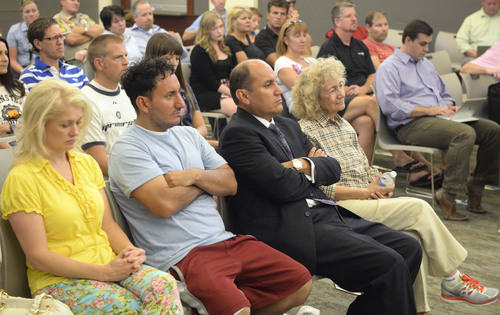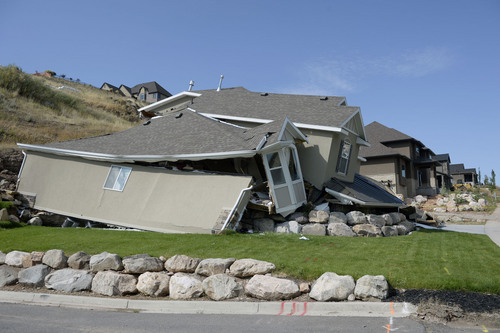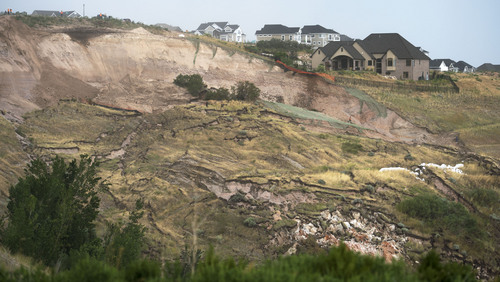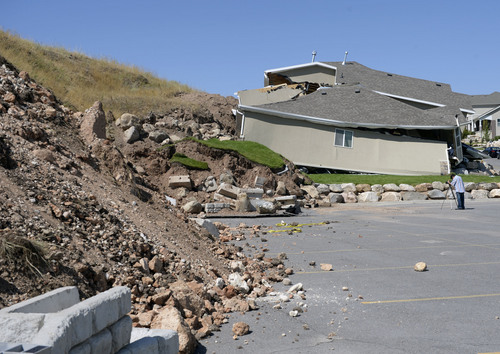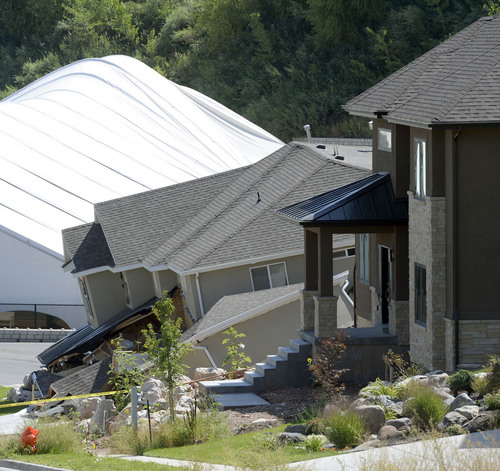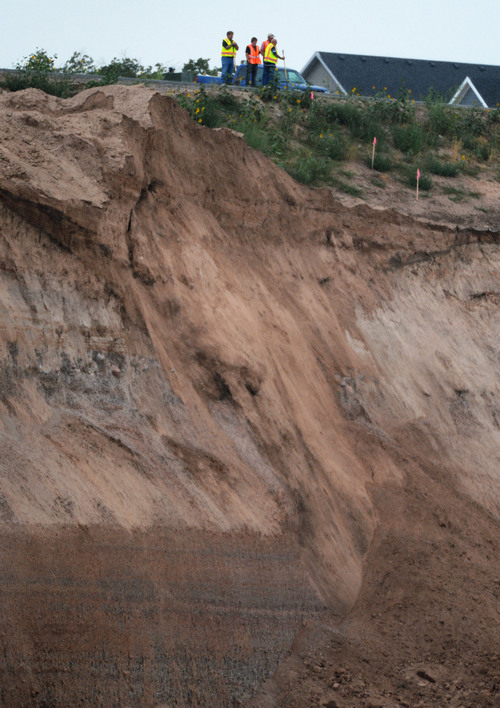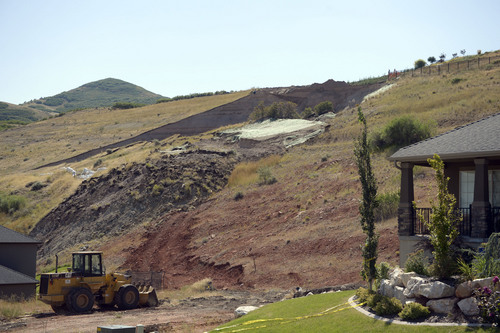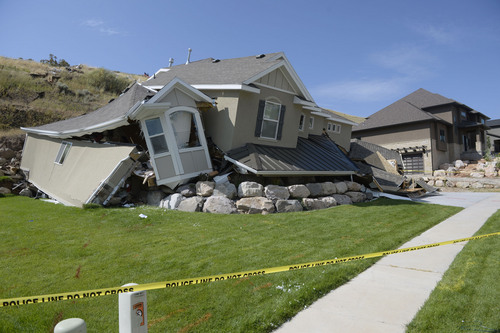This is an archived article that was published on sltrib.com in 2014, and information in the article may be outdated. It is provided only for personal research purposes and may not be reprinted.
North Salt Lake • City officials are considering whether construction, done without permits, may have contributed to a landslide that destroyed a home here.
The same slope was deemed stable just last year. A home developer, Sky Properties, hired GSH Geotechnical to evaluate the ground for Eaglepoint Estates, which is located about 950 S. Parkway Drive. That study, dated June 2013, determined that the slope around the hilltop site — made up of sand, silt, gravel and clay — was "globally stable."
City staffers discussed the study in a two-hour meeting Thursday to determine whether they could have done more to foresee a slide — one that is still moving "ever so slighty," said City Manager Barry Edwards.
The study "was fine," Edwards said, so the city is curious to know whether any construction might have gone on without a permit, including the installation of a retaining wall, and thus could have violated the study's recommendations.
The problem, though, is that if work was done without permits, that lack of documentation would make it difficult to determine whether a resident, a contractor or the developer was responsible, Edwards acknowledged.
Either way, the probe is in its early stages. For the time being, the city is waiting to gather data on the slope so they can prepare a long-term plan to remediate it.
"This is the critical day for us," Edwards said. If the weather is on their side, they "should be able to see significant improvement" in the drying ground.
Another geological study, done by Applied Geotechnical Engineering Consultants for the Eaglepointe development from 2003, notes that the site is "suitable for the proposed residential development."
However, the consultants suggested later in the report that a more detailed analysis "of portions of the proposed development is suggested for surface fault rupture, landslide and debris flow."
Rockfall and avalanches, though, were not considered potential hazards, the study adds.
On Tuesday, rocks and debris slid down from the new construction site, destroyed one home and threatened others. Of the 27 families who were evacuated from the Eagleridge neighborhood, in the vicinity of 739 S. Parkway Drive, only four families have been unable to return.
That includes the Utrilla family, whose home was crushed under slow moving dirt, mud and rocks. No one was injured.
Steven Peterson, who lives on Parkway Drive, voiced concern at the Thursday meeting that if the ground moves significantly and pushes the homes farther, they might cross the street and create a domino effect as they crash into more homes. Edwards said that they would look into the possibility, but added that he heard anecdotally that the street would slow down such a slide.
Peterson was one of only a handful of residents who attended the meeting, many less than the dozens who turned out for the city's update the day before. Some residents at that Wednesday meeting asked why the developer was allowed to build at the top of the hill. Edwards said state law allows a development to be built if it meets certain requirements and the city has little recourse.
Edwards had heard other anecdotes that there had been a slide on the slope about 10 years ago, but has found no evidence of it.
A fund to assist the family members who lost their home has been established at America First Credit Union under the name Utrilla Family Relief Fund.
Twitter: @mikeypanda


